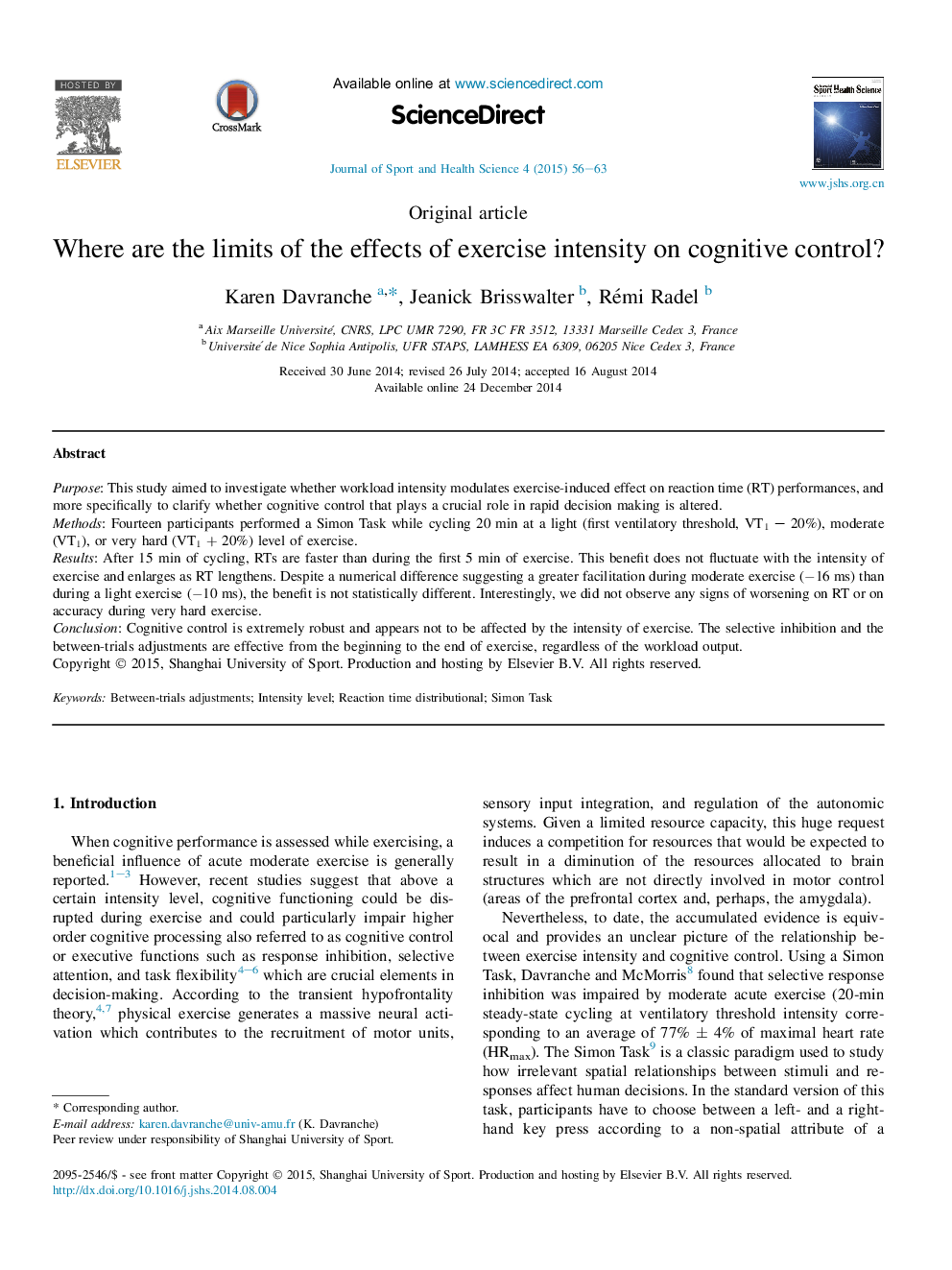| Article ID | Journal | Published Year | Pages | File Type |
|---|---|---|---|---|
| 1084080 | Journal of Sport and Health Science | 2015 | 8 Pages |
PurposeThis study aimed to investigate whether workload intensity modulates exercise-induced effect on reaction time (RT) performances, and more specifically to clarify whether cognitive control that plays a crucial role in rapid decision making is altered.MethodsFourteen participants performed a Simon Task while cycling 20 min at a light (first ventilatory threshold, VT1 – 20%), moderate (VT1), or very hard (VT1 + 20%) level of exercise.ResultsAfter 15 min of cycling, RTs are faster than during the first 5 min of exercise. This benefit does not fluctuate with the intensity of exercise and enlarges as RT lengthens. Despite a numerical difference suggesting a greater facilitation during moderate exercise (−16 ms) than during a light exercise (−10 ms), the benefit is not statistically different. Interestingly, we did not observe any signs of worsening on RT or on accuracy during very hard exercise.ConclusionCognitive control is extremely robust and appears not to be affected by the intensity of exercise. The selective inhibition and the between-trials adjustments are effective from the beginning to the end of exercise, regardless of the workload output.
